I’ve never been this excited to get back to homeschooling…
I’m in year five of this homeschool gig, so it’s not exactly a novelty anymore. However, I’ve found myself literally counting down the days until we’re back to the books next week.
What a weirdo.
Is it because I redid our school room and I can’t wait to sit on the new rug and drink my coffee in there?
Maybe.
Is it because we’re doing a deep dive into American history this year and I’m kind of a history nerd?
Kinda.
Is it because there’s something about fresh curriculum that makes me strangely giddy?
Very possible.
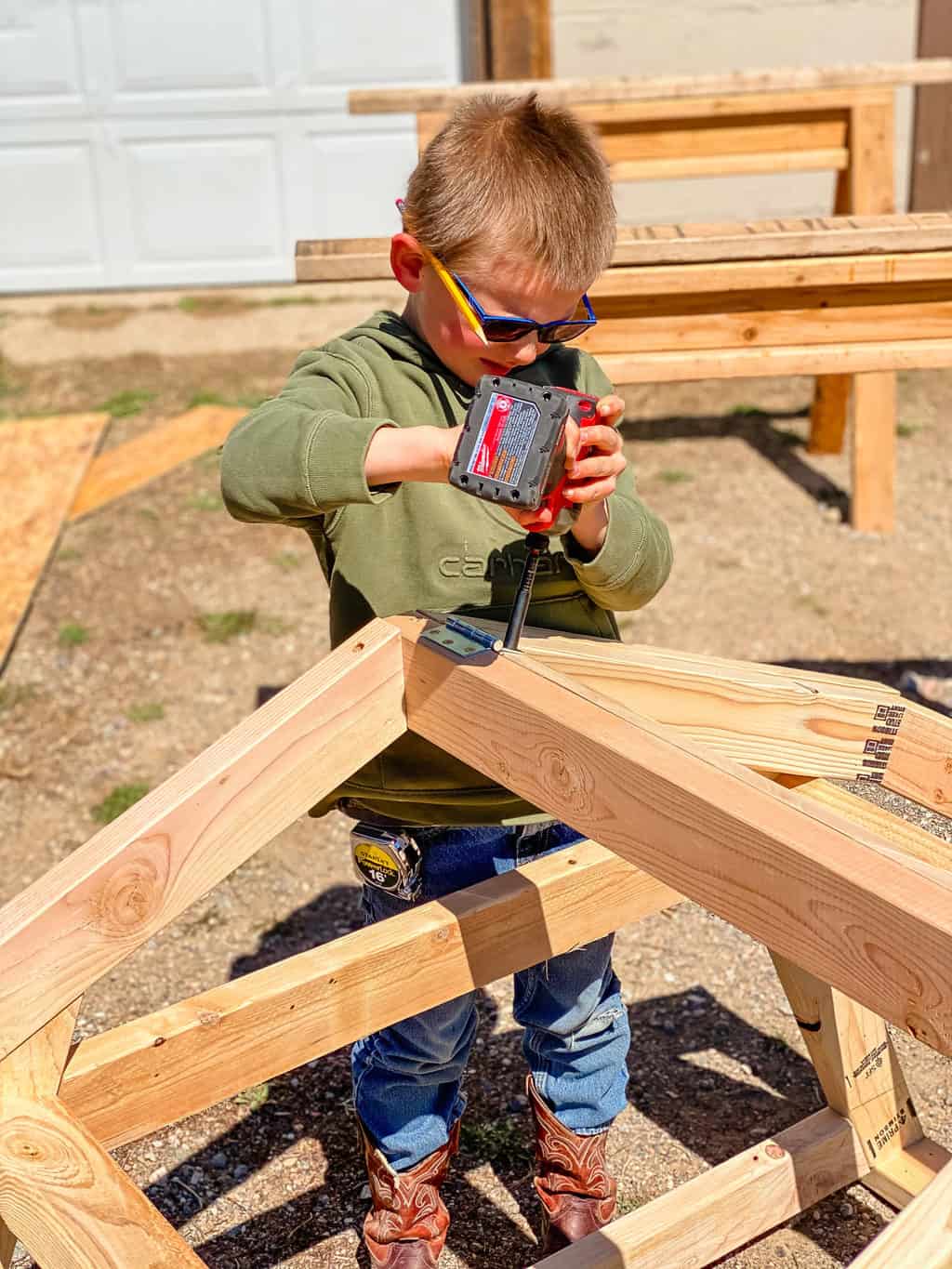
Truthfully, I think the root of my excitement has come from the many talks I’ve had with brand new and prospective homeschoolers this year.
All these conversations have given me a chance to revisit why we chose this lifestyle in the first place (because make no mistake– homeschooling is a lifestyle), and my fire has been rekindled.
I realize that many of you have been thrust into this world unwillingly. It’s not what you ever saw yourself doing, but here you are.
I want you to know that it’s all gonna be alright.
We’ve been homeschooling since our firstborn was in kindergarten and I was homeschooled K-12 myself (yup– in the legendary homeschool culture of the 1990s– it’s changed a lot since then. Thank goodness.)
I’m not an expert, but I do have a unique perspective– both as a homeschool graduate and a current homeschooling mother of three.
Here are a few of the most common questions I’m seeing right now, along with a few of my thoughts:
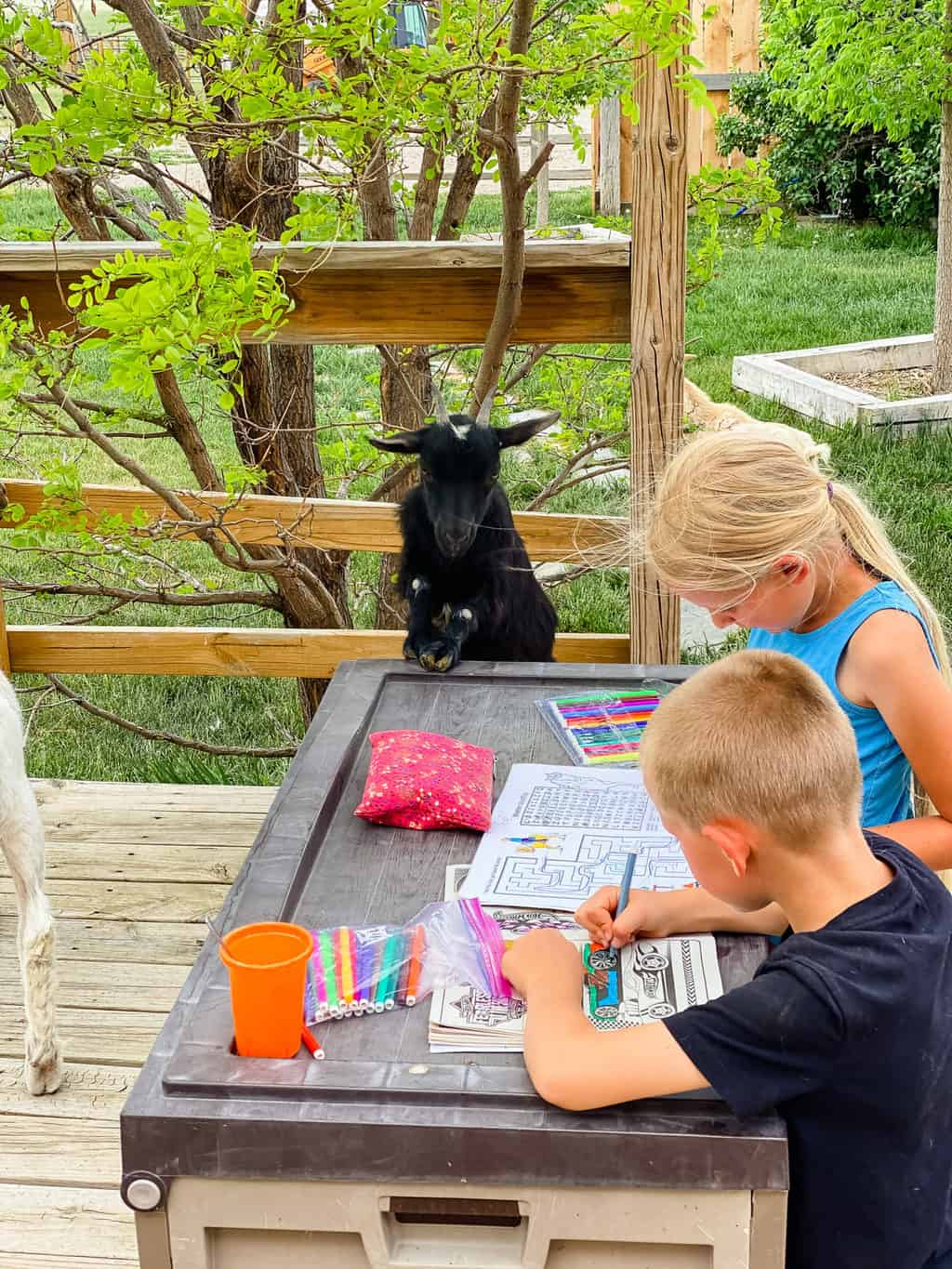
#1 What Curriculum Should I Use for Homeschooling?
This question is, by far, the toughest one I get. It’s not that using curriculum is hard, but there are eleventy-billion different choices, and sorting through them all is somewhat mind-numbing.
There’s not a one-size-fits-all answer to this question. Period.
Most newbie homeschoolers are drawn to an all-in-one style of curriculum where you make one purchase and get ALL the things.
There’s nothing wrong with that, per say, but I don’t know many veteran homeschool moms who use those sort of curriculum options, since they rarely fit the uniqueness of the child.
Most of my homeschooling friends piece together their own curriculum (i.e. they use one set of books for math, a different set from a different publisher for reading, etc).
My best advice in this realm is two-fold:
- Keep it simple. Focus on the core subjects and don’t worry about the extras your first year
- Do not attempt to replicate a public school classroom. Public schooling was created for a specific purpose and is designed to move a large group of diverse children through the exact same curriculum in a way that is mostly successful for the majority. You don’t have to do that. You get to tailor this whole thing to fit your family and your children. Education does NOT have to be cookie-cutter, nor should it be. Also, I will preach this until the cows come home– the 8am-3pm schedule that most public schools follow came as a result of the Industrial Era and was created to fit the work schedules of parents. It rarely takes that amount of time to teach a child the crucial subjects, plus free time and free play are some of the best educational pieces you can ever offer your child.
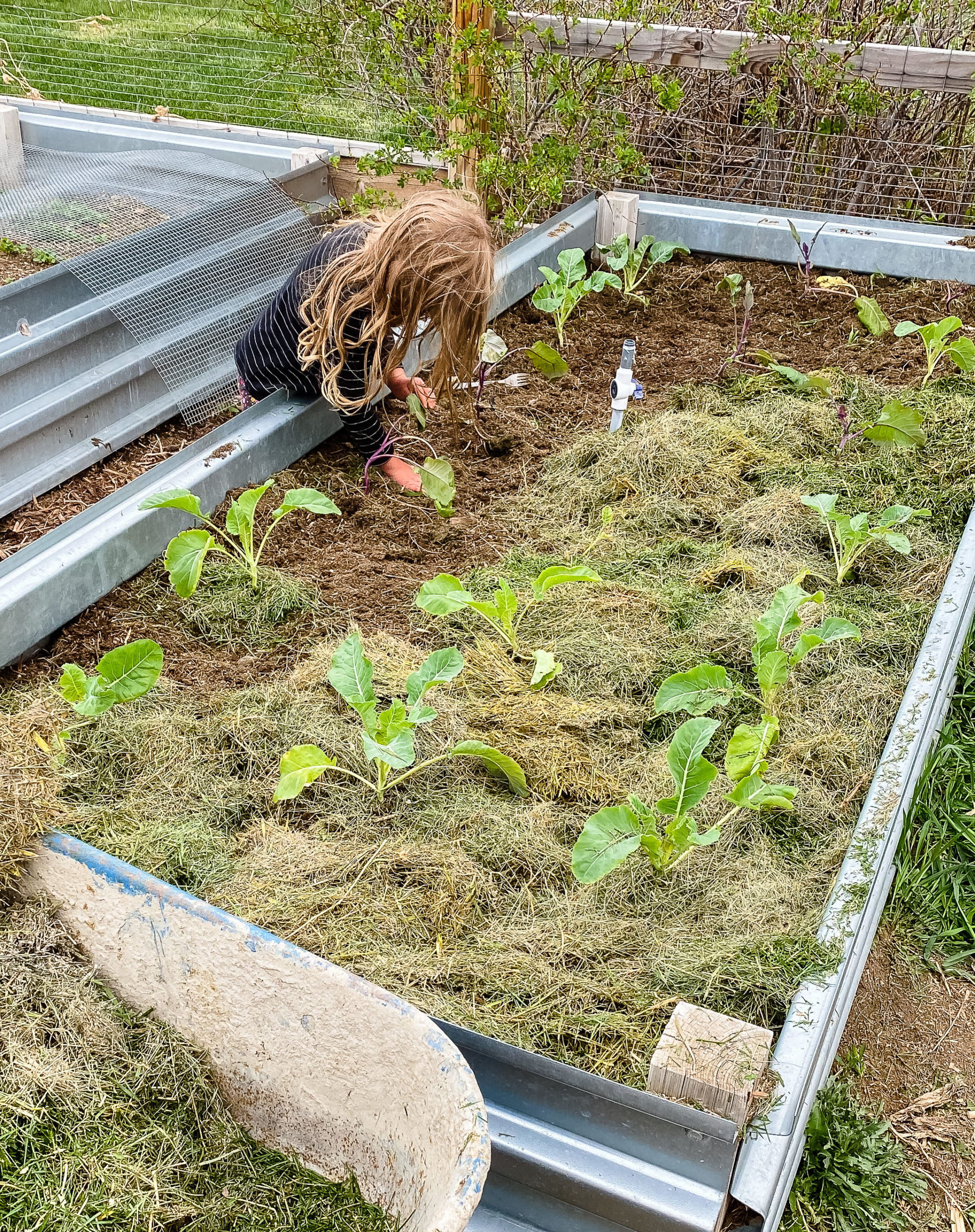
Our Homeschool Routine and Curriculum
We’re not fancy.
I don’t lesson plan much, if at all, and we generally school for 2.5-3 hours each morning. That’s it.
Math and language arts are our main focus, with science and history coming in at a close second.
(Another post coming soon with my current curriculum choices.)
We don’t do a lot of extra stuff on top of these four subjects unless I think the kids need something.
Actually, allow me to rephrase that:
We do a LOT on top of those four subjects, but not in the “formal” sense.
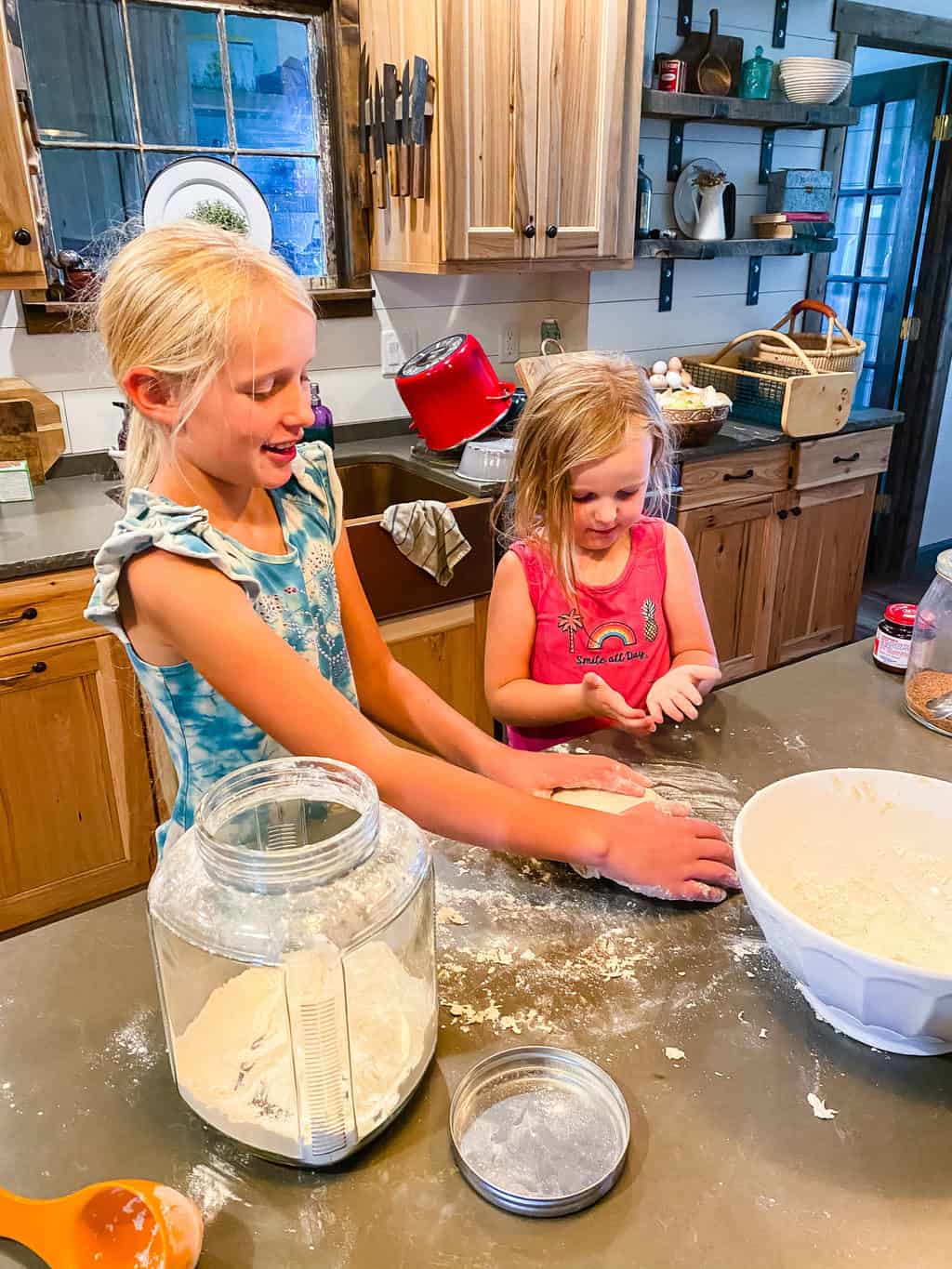
My kids build, create, and problem solve ALL DAY LONG.
We let them use scrap lumber, tape measures, hammers, saws, and nails to build all sorts of contraptions.
They basically live in an animal science lab and help with breeding, birthing, nutrition, husbandry, and more.
They’re helping us remodel our fixer upper house project, and are learning how a house is put together, how to use tools, and loads of problem-solving.
They can identify dozens of different plants, grow and nurture vegetables, and they actively participate in preserving food.
They can make their own breakfast, safely use our gas stove, make scrambled eggs, bake desserts, and are currently learning how to make yeast breads.
Honestly, when the fleeting thought of sending my kids to public school has crossed my mind in the past, my instant reaction is “They’d miss out on too much if I sent them to school!”

Whatever, Jill. We don’t live on a homestead so it’s not the same for us.
Oh, but it is.
Even if you live in the heart of the city, the learning opportunities abound.
Take me, for example. Homeschooling (and the free time that came with it) is the #1 thing that fostered creativity, leadership, ingenuity, and resilience in me as a child and young adult.
And I was raised in a small housing development-– no homestead, no land.
It’s not about where you live, it’s about how you maximize the opportunities in front of you– and there are MANY.
My favorite book to help foster this mindset shift is Weapons of Mass Instruction by John Taylor Gatto. Read it. It’ll change you forever.
#2 What If I’m “Not Good Enough” To Teach My Kids?
I hear this one expressed in a variety of ways:
“I’m not qualified to teach my kids”
“I don’t know enough”
“I wasn’t a very good student myself”
“I didn’t go to college”
There is a commonly held belief that if you don’t have a bachelors degree in childhood education, then you can’t adequately homeschool your own offspring.

I don’t buy it.
There’s nothing wrong with a teaching degree, but I wholeheartedly reject the notion that one needs four years of higher education to teach their own children.
As long as you are willing to learn alongside your kids and follow a book or lesson plan with your kids, you will do fine.
That’s why we have curriculum.
So if you don’t need a teaching degree, what do you need?
Consistency and the ability to read instructions and troubleshoot situations that might come up.
And as your kids get older, they will learn to follow the instructions and troubleshoot issues, which is just as important as the lessons themselves.
Teaching our kids to learn how to learn (aka how to teach themselves), is one of the MOST valuable things we can impart to them. An adult with a healthy dose of curiosity and love for learning (that hasn’t been snuffed out) is pretty much unstoppable.
P.S. My mom never went to college. Yet, I was in the upper 95% percentile in my standardized tests each year, had above-average ACT and SAT scores, and even attended an English class at the University of Idaho when I was still in highschool. After I graduated, I double-majored in Equine Science at a community college, graduated with Honors and a 4.0, and tutored other students, all while holding down a job and riding on the college horse show team. I’m not saying this to brag, rather I’m telling you this because I was MORE than prepared for college, even though my “teacher” never attended herself.
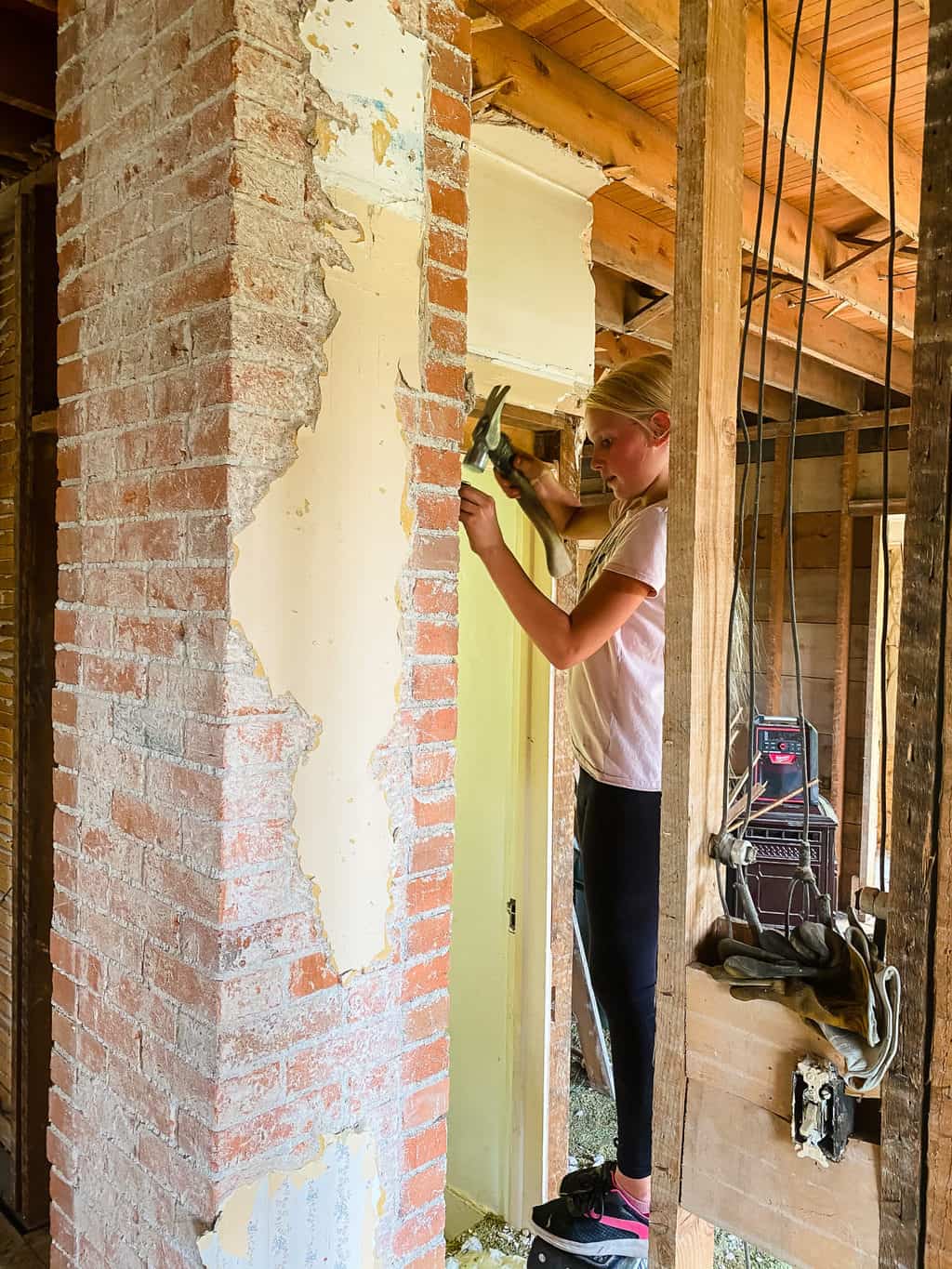
#3 What About Socialization?
Ah, the good ol’ “S” word…
As a homeschooler in the Nineties, this was the thing people rubbed in our faces more than anything else.
Not gonna lie, it gets old.
I honestly don’t hear this one come up as much as it used to– I suspect it’s because homeschooling has been around a little longer and there are AMPLE examples of well-adjusted homeschooled adults.
But that doesn’t mean it has disappeared entirely.
Truthfully, I’ve found that TOO MUCH socialization is generally the issue when it comes to homeschooling, rather than not enough.
There are SO many activities and opportunities available to homeschooled kids, the tricky part for us is finding a balance and still making sure we have enough time to do actual school work.
If this is an area that makes you feel a little uncertain, all it takes is a quick Google or Facebook search to find options in your community– whether that’s 4-H, music lessons, dance, sports, volunteering, shadowing someone in a trade or skill that interests your child, etc. There are SO many opportunities, you just have to be willing to think outside of the box.
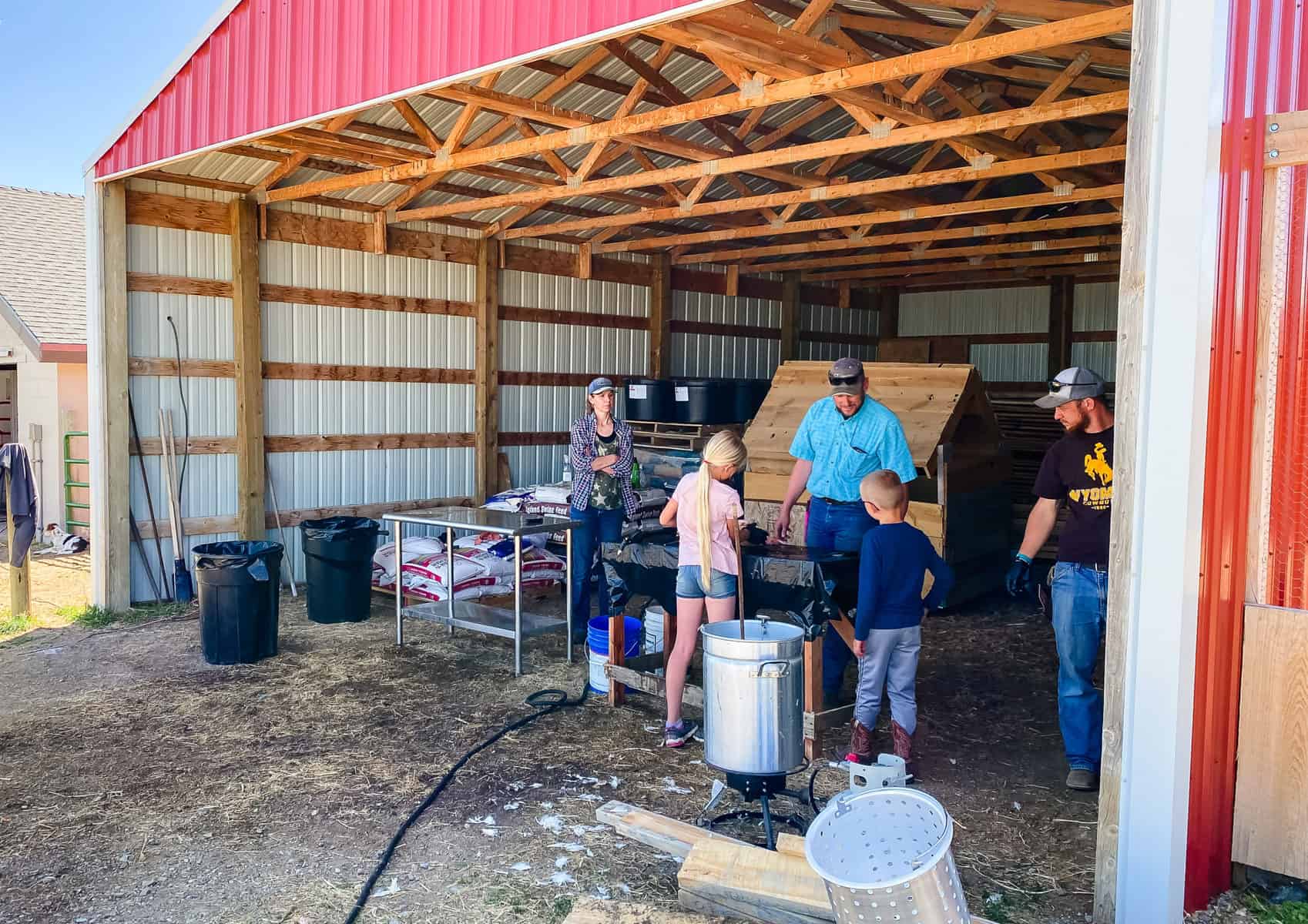
Does Socialization Really Happen in a Homogenous Herd?
It’s a question I’ve pondered for years…
I’ve come to be of the personal opinion that true socialization does not happen by putting a child in a large herd of other kids that are their same age.
Historically, not only did children learn in one-room schoolhouses with wide age ranges, but they spent a LOT more time operating in the adult world.
This idea that socialization equates to a child spending the majority of their time in a group of 40 other kids their exact age feels out-of-touch to me.
There’s absolutely nothing wrong with having friends of similar age, but I also want my kids to be able to interact with smaller children, with adults, and with the elderly.
#4 What if My Child Falls Behind in School?
I LOVE this question.
Because I don’t think it’s as big of a deal as people think it is.
*gasp*
I hear SO many parents expressing SO much worry this spring when school districts had to switch to distant learning for a short time.
“My kid didn’t learn ANY new math!”
“They are going to be SO far behind!”
“This is going to mess them up for the rest of their school career!”
Eh, maybe.
Or maybe not.
The term ‘falling behind’ is tricky because it assumes that all children learn and progress at the exact same pace at the exact same time.
We know that’s not true.

I understand why institutionalized schooling is the way it is. I understand the need for benchmarks and “levels”.
However, established benchmarks and levels obviously don’t fit everyone.
They often inadvertently slow down the kids who want to work more quickly, and discourage or alienate the kids who are a bit slower-paced in certain areas.
The beauty of homeschooling is that you can tailor it to the pace of your child. Let them run fast in a certain subject if it’s their jam. Or if they’re struggling in a certain area, go back. Keep at it until you reach that mastery, then move on. There’s no stigma and no stress.
Yes, we still finish our textbooks. Yes, we are consistent in doing school each day. Yes, it’s important that my kids do their school work well and have a firm grasp on all of the important topics before they become adults and leave home.
However, the ability to be resilient, to solve problems, to think for themselves, to not get stuck in the cycle of conformity, to cultivate the ability to create… THOSE are the pieces that are ultimately the game-changers.

Friend, You Got This.
At the end of the day, what you do with your kids’ education is your call.
If you know public school is right for your child, do it.
If you know your child would thrive in the homeschool environment, do it.
The only real mistake you can make??
To make your choice based on the opinions of those around you, or what friends/family are telling you should do.
Block out those voices and go with your gut.
Because here’s the deal:
Regardless of what you choose, somebody is going to think that what you’re doing is wrong.
It’s annoying and freeing, all at the same time, dontcha think?
You are capable, my friend. And this decision, as scary as it may feel at first, might just be the best choice you ever made.
I’m rooting for you.
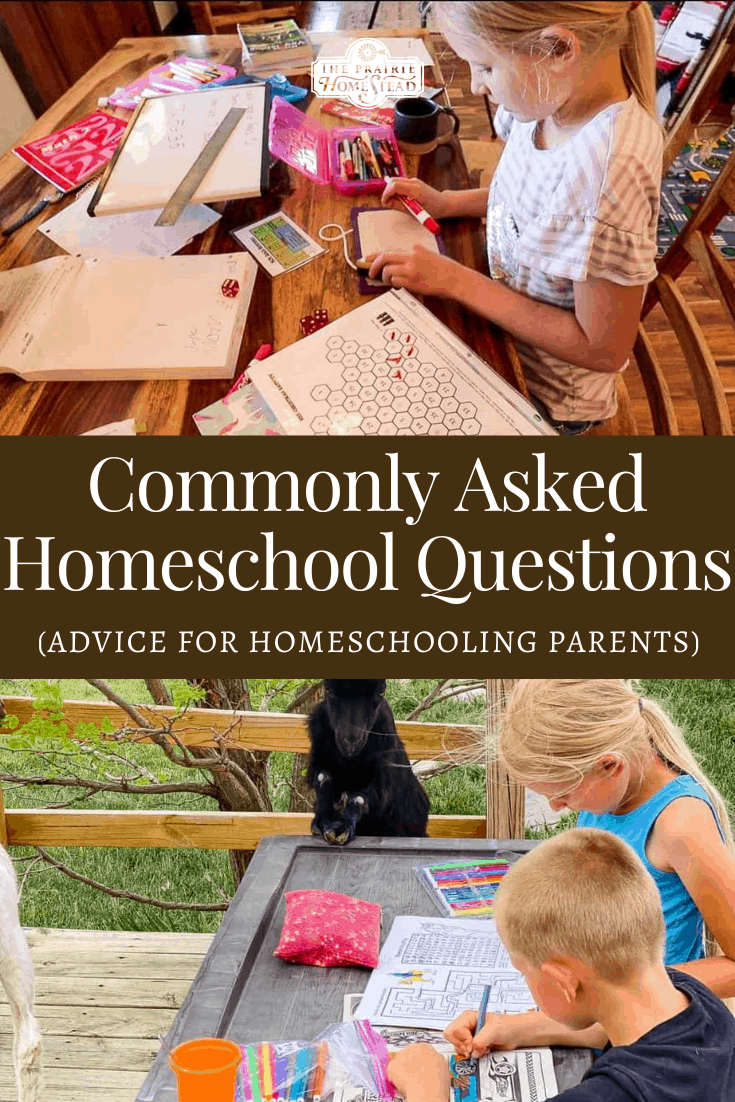
More Tips on Raising Old-Fashioned Kids:
- Homeschool on the Homestead
- Raising Old-Fashioned Kids in a Modern World
- Life Lessons My Kids Have Learned from the Homestead
- Why I’m Teaching My Kids to Fail
The post Will My Kids Fall Behind? (And Other Homeschooling Questions) appeared first on The Prairie Homestead.
Via Gardening http://www.rssmix.com/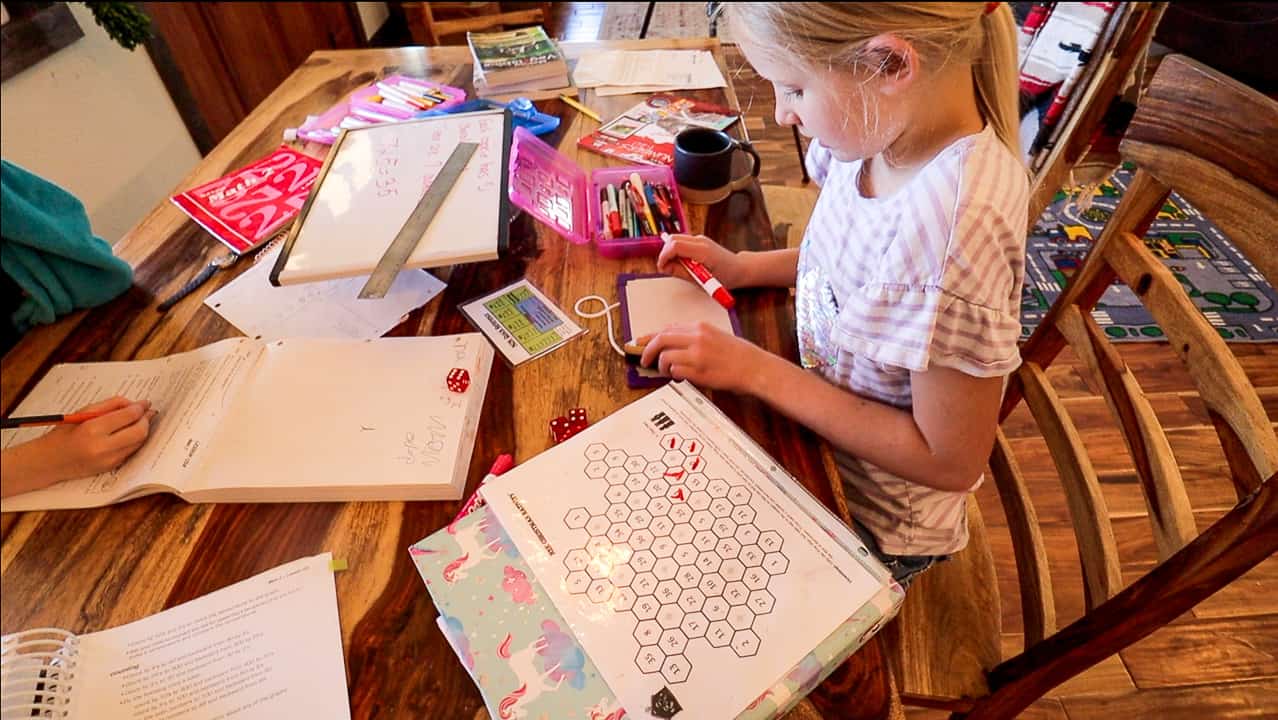
No comments:
Post a Comment